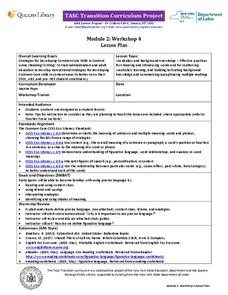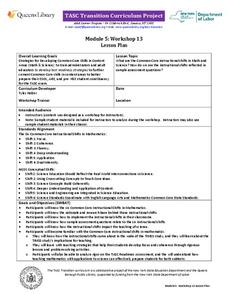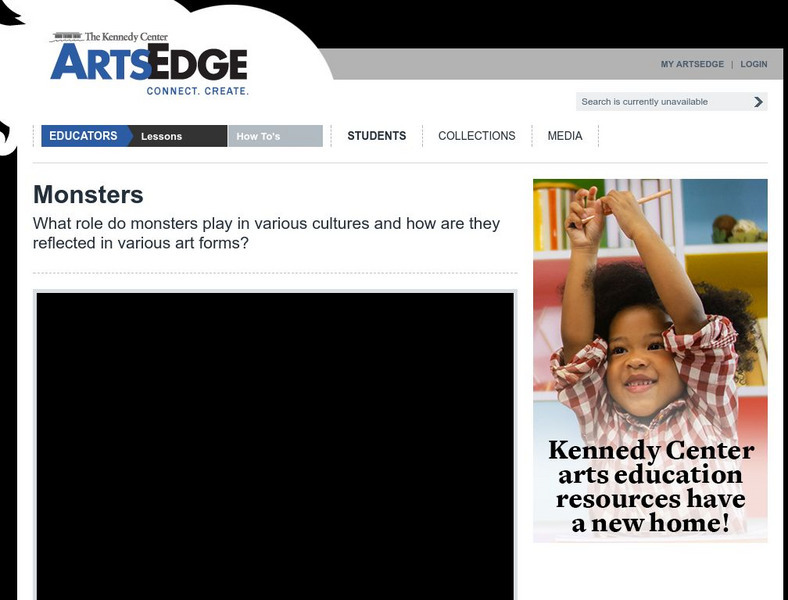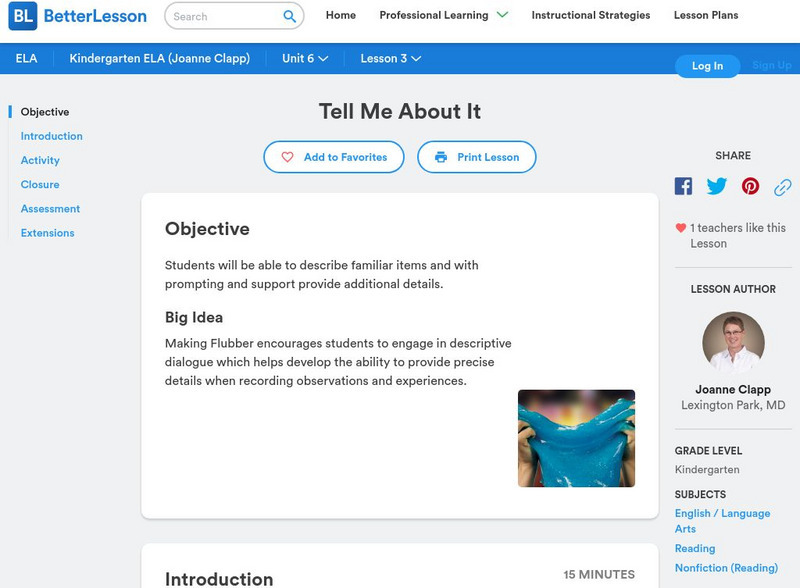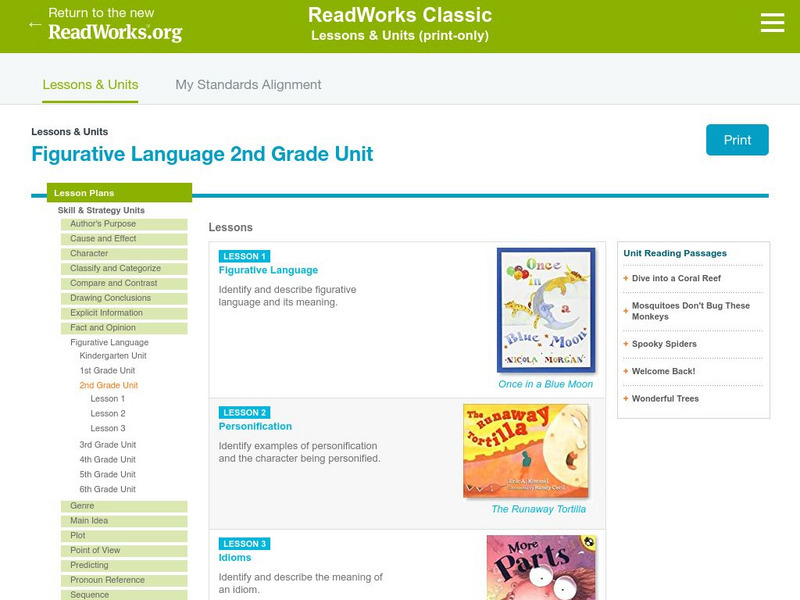College Board
AP® Psychology Cognition and Language
I can remember what happened five years ago, but I can't recall what I did last week! High school psychology students analyze how memory, cognition, and language impact one another. Hands-on activities, memory exercises, and research...
New York State Education Department
TASC Transition Curriculum: Workshop 4
Why is it important to use precise language? Participants explore this question in the fourth activity in a series of 15 on effective instruction. Perfect for all content areas, the activity promotes appropriate language choice through...
New York State Education Department
TASC Transition Curriculum: Workshop 13
The six instructional shifts in this workshop definitely move math and science teachers' understanding of instruction. The workshop, 13th out of a series of 15, asks participants to examine sample tests and to look at how the six...
EngageNY
TASC Transition Curriculum: Workshop 12
How can opinions slant facts? Workshop participants learn how to examine primary and secondary sources and identify the author's point of view. They also examine how visual art impacts the meaning and rhetoric of sources. Full of...
New York State Education Department
TASC Transition Curriculum: Workshop 10
How have educational standards evolved? Educators of adults examine expectations in the 10th workshop out of 15 to better determine how standards have grown. Participants respond to a variety of sample questions to determine how they...
Better Lesson
Better Lesson: Complete the Sentence....
Oral language development is crucial to Kindergarteners because it lays the foundation for the development of reading and writing. One of the main skills students need to tackle is speaking in complete sentences. With this lesson,...
National Endowment for the Humanities
Neh: Edsit Ement: Lesson Plan: Arabic Poetry
This online lesson plan introduces information about the Arabic poetic art form known as the ghazal. It includes Educational Objectives, classroom activities and projects, examples, and a list of the relevant national educational standards.
Alabama Learning Exchange
Alex: A Math and Language Arts Lesson: Division
The lesson will help students develop an initial understanding of division and clarify how the four operations of addition, subtraction, multiplication, and division relate to and are separate from each other. The lesson begins with a...
ReadWriteThink
Read Write Think: Cooking Up Descriptive Language Designing Restaurant Menus
Contains plans for four lessons that ask students to develop their descriptive writing skills by creating their own restaurant menus. In addition to objectives and standards, this instructional plan contains links to sites used in the...
Better Lesson
Better Lesson: Developing Characters and Experiences With Sensory Language
Adding sensory languages makes your writing so good you can see, hear, smell, taste and touch it. This lesson will show you how to use descriptive sensory language in order to develop and capture the experiences and characters in a...
Crayola
Crayola: Big as Life Book Report (Lesson Plan)
This is a fun idea to display your students' book reports, and encourage reading at the same time! In this online lesson, children use special markers to actually draw their book report on the windows of the library or classroom. Also...
Crayola
Crayola: Coming Attractions Theater (Lesson Plan)
A fun twist on the standard book report! At this learners work on their sequencing skills, while creating a "Theatre," to display their book report. Also provides resources and adaptations. (To access this lesson plan, you must register...
Other
Tesol: Helping Students Understand That Written and Spoken English Are Different
This in-depth article analyzes how teachers can effectively teach students that written language does not always correspond to spoken language. Sample lesson ideas are included. SL.9-10.6 Adapt to task/formal. CCSS.ELA-Literacy.CCRA.L.1,...
Better Lesson
Better Lesson: Gold Collar Jobs
As we expose our students to different ideas, it is important they see that not all words come from books- some of our best ideas come from conversations and things we see or do! A quick, easy and free way to help our students get...
Better Lesson
Better Lesson: Awe Inspiring, Extraordinary, Erudite Kids
Using complex language, including rich descriptors, is necessary for mastery of the CCSS Standards. This lesson is a great lesson in using adjectives to enrich speaking and writing. Included are a video demonstration and printable...
John F. Kennedy Center
The Kennedy Center: Lesson Plan: Monsters
Following a reading of the epic poem Beowulf and the contemporary text inspired by it, Grendel, students create their own monster. Lesson plans provide assessment criteria, extension ideas, and a list of resources.
John F. Kennedy Center
The Kennedy Center: Lesson: You Too Can Haiku
Here's a creative lesson for students to examine various haikus, and Japanese culture, then write their own haiku poem, and illustrate it using watercolors! Provides plenty of links to more information, a thorough explanation of the...
Crayola
Crayola: Birth of Bits and Bytes (Lesson Plan)
This lesson plan incorporates many subjects! Learners create a flow chart after studying the "Evolution," of computers. Also provides adaptations and references to use. (To access this lesson plan, you must register with Crayola.com....
Better Lesson
Better Lesson: Guess My Solid
Descriptive details are used as students develop a guessing game poster for others to try and guess their chosen solid. Included in this detailed lesson plan are videos, samples of student work, a printable worksheet, an assessment...
Better Lesson
Better Lesson: Speaking and Listening: Collaborative Conversations
Learners will partner read The Kite, by Alma Flor Ada. Then work together in small collaborative groups to describe the character of the mother, the children, or the kitten. Included in this lesson are video demonstrations, printable...
Better Lesson
Better Lesson: Tell Me About It
Students will be able to describe familiar items and with prompting and support provide additional details by making Flubber. Making Flubber encourages students to engage in descriptive dialogue which helps develop the ability to provide...
Better Lesson
Better Lesson: Domestic vs. Wild
Sorting items help young scholars develop language skills as they describe attributes and qualities to determine which category is the best fit for an item. The teacher will introduce the definitions of wild and domestic by reading the...
Read Works
Read Works: Grade 2: Three Lesson Unit: Figurative Language
[Free Registration/Login Required] A series of three lesson plans designed to teach young scholars to identify and explain the meaning of figurative language including personification and idiom. Lessons are based on the books Once in a...
Read Works
Read Works: 3rd Grade Lesson: Poetry
[Free Registration/Login Required] A lesson in which students use two provided poems to learn to identify and understand the use of similes and metaphors in poetry. Lesson includes direct teaching, guided practice, and independent...

